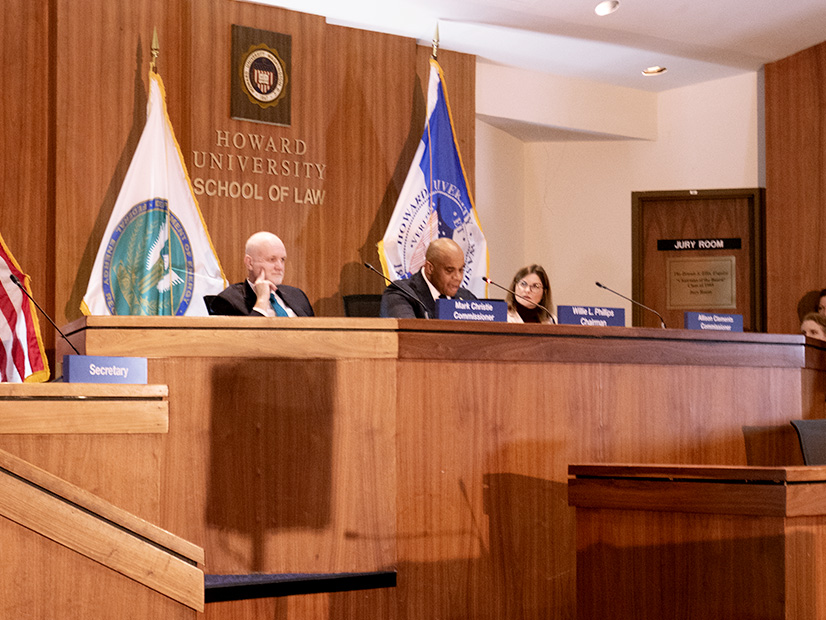
WASHINGTON — FERC has approved new mandatory reliability standards on weatherization that implement recommendations that came out of its and NERC’s joint report on the 2021 outages caused by Winter Storm Uri.
The outages caused by cold weather that week were worst in Texas, though other grids suffered shorter outages. Overall, 4.5 million people lost power and 210 people died during the storm.
NERC adopted a two-phase process to implement recommendations from the FERC/NERC joint report on Uri, and FERC’s order Feb. 15 deals with the second phase.
The EOP-011-04 standard requires utilities to include critical natural gas infrastructure on their load-shedding plans so they are not shut down due to a lack of power, exacerbating electric outages during cold weather, as happened in Texas. Balancing authorities must develop, maintain and implement operating plans with provisions for excluding critical gas infrastructure from interruptible load, curtailable load and demand response during cold weather.
NERC also sought approval of standard TOP-002-5, which requires balancing authorities to have an operating process for weather events that includes a method for identifying extreme cold conditions, a method for determining a proper reserve margin for such conditions that takes into account operational limits of generators and a method for determining a five-day hourly forecast that accounts for all relevant operational considerations.
FERC said ensuring natural gas infrastructure works during cold weather is an improvement over current rules.
“Doing so will help ensure that deploying these programs in extreme cold weather conditions will not exacerbate natural gas fuel supply issues, which could constrain generating unit capacity and thereby threaten the reliable operation of the bulk power system,” FERC said.
The proposal gives distribution and transmission providers 30 months to develop a plan, with the clock starting later this year. That led FERC in its order, and commissioners at their regular open meeting, to ask entities that can do so to comply earlier.
“Utilities that can comply early with the mandatory implementation date, please, I implore you: Do so,” Chair Willie Phillips said.
Commissioner Allison Clements seconded the call at the open meeting and in a concurrence to the order, noting some of the improvements are not required to be in place until more than three years from now.
“The grid and customers won’t experience the full extent of these protections for at least three more winters,” Clements said. “I appreciate that NERC has worked hard to improve reliability standards and that the implementation timeline here is responsive to some concerns in the stakeholder process, which is important. But as I’ve stated at past open meetings, waiting years for new reliability standards to kick in, whether they be cold weather or cybersecurity requirements, is not reflective of the urgency these issues demand.”
The industry has seen other cold winter events since Uri, with NERC and FERC working on another joint report from the cold weather experienced in January.
FERC Delegates Settlement Authority to Enforcement Director
FERC also issued a policy statement tweaking how it handles enforcement actions that delegates authority to open settlement talks with subjects of investigations to the director of the Office of Enforcement. Previously, staff had to get permission from FERC commissioners themselves to take that step.
The change is meant to streamline the settlement process so enforcement investigations are resolved more efficiently.
“If and when enforcement staff receives a viable settlement offer from the subject, it will negotiate the applicable terms and thereafter present the written offer of settlement to the commission for formal voting,” FERC said in its policy statement. “Importantly, while the new process grants enforcement staff new discretion to commence and engage in settlement negotiations, it does not change the fact that it is the commission that ultimately determines whether a settlement of an investigation is in the public interest and should be approved.”



